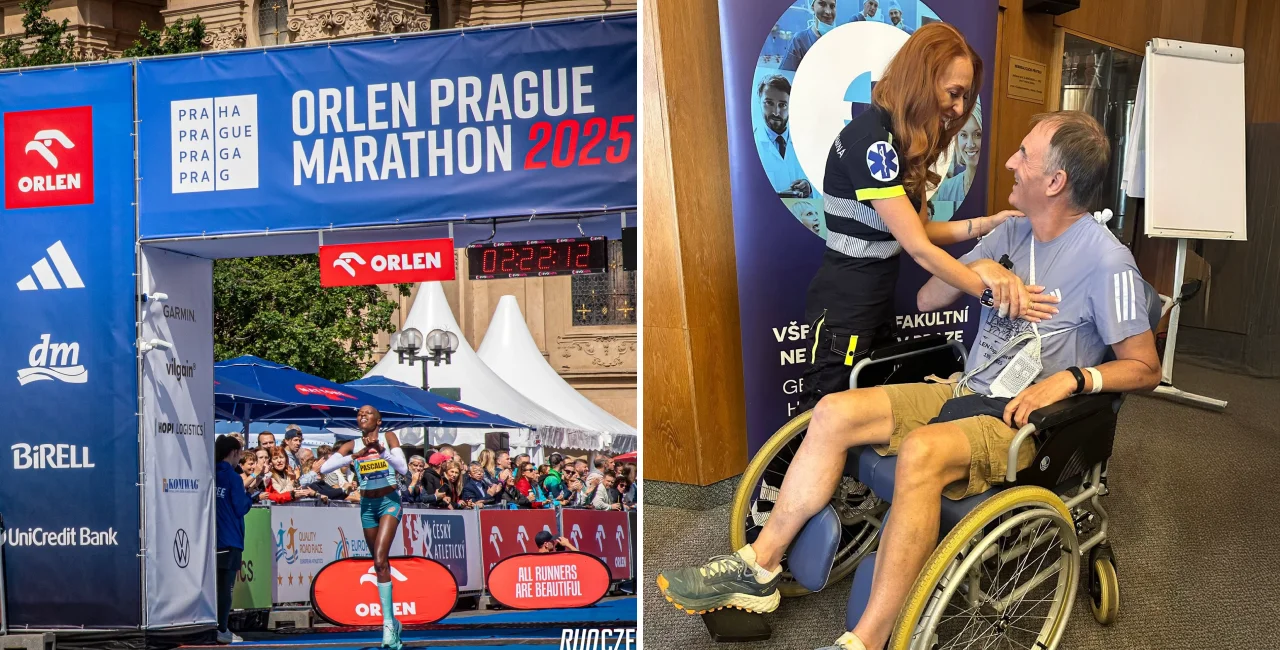When 55-year-old Irish runner Paul collapsed just a few hundred meters into the Prague Marathon on May 4, his chances of survival were slim. His heart stopped working for 47 minutes—a near-impossible recovery in many countries, including his native Ireland.
But thanks to Prague’s advanced emergency response and the General University Hospital’s (VFN) cutting-edge extracorporeal resuscitation system, Paul survived what doctors call an extraordinary medical event.
Dr. Jan Bělohlávek, head of the hospital, said the coordinated effort between paramedics, emergency dispatchers, and hospital staff was crucial. “He was extremely lucky that the cardiac arrest occurred right in front of the rescue crew, who began CPR immediately and identified him as a candidate for extracorporeal membrane oxygenation (ECMO),” Bělohlávek told Novinky.cz, which first reported the story.
ECMO is a method that temporarily takes over heart and lung function, providing oxygenated blood to the body during critical cases when the heart cannot restart on its own. Paul was transported under ongoing resuscitation to the hospital, receiving multiple defibrillation shocks en route and on arrival.
Deputy Director of the Prague Rescue Service, Zdeněk Křivánek, emphasized Prague’s well-established emergency system: “Thanks to telephone-assisted resuscitation, where dispatchers guide bystanders through CPR, eight out of ten cardiac arrest patients receive help before paramedics arrive—significantly improving survival chances.”
Paul’s heart stopped for nearly 47 minutes, yet after being connected to ECMO, his heartbeat returned. Doctors performed coronary angioplasty and implanted a stent after discovering severe artery damage caused by the cardiac event.
Within 48 hours, Paul was awake and preparing for repatriation to Ireland. “Had this happened at home, his chance of survival would have been very low or nonexistent,” Bělohlávek said.
Prague’s extracorporeal resuscitation system is rare in Europe, currently operating fully only in a few cities, including Paris, Regensburg, and parts of London, with trials underway elsewhere.
Paul, a dedicated runner with no prior health issues, expressed gratitude from his hospital wheelchair: “I came to Prague to run the famous Prague Marathon. I’ve been here several times, and I have run up and down the river. Fantastic views, beautiful city,” he said in a video clip.












 Reading time: 2 minutes
Reading time: 2 minutes 

























